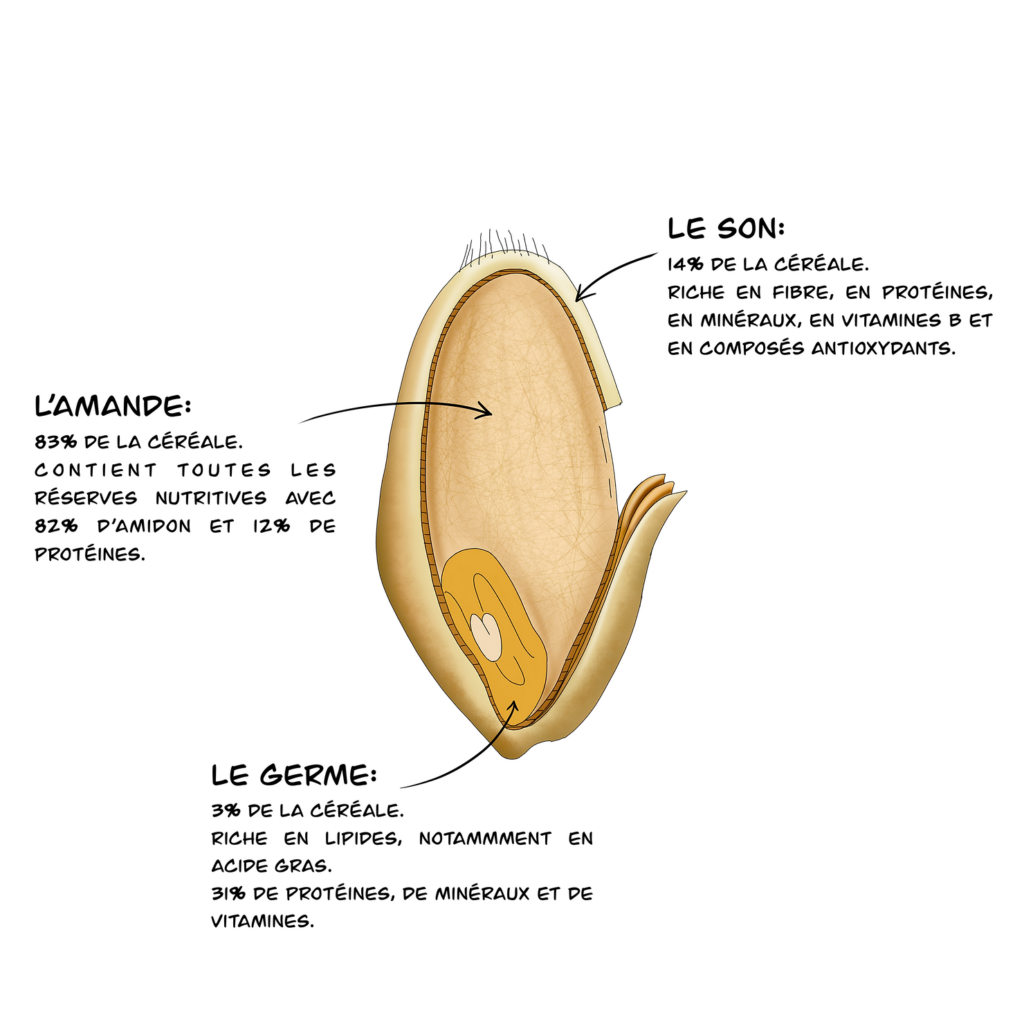Organic flour is made from organically grown seeds. If we are hearing more and more about this type of farming, it’s because the health stakes are so high. Pesticides, GMOs and chemical fertilisers are now banned from our plates, to the benefit of our health. So what are the advantages of producing organic flour? If you’re a cereal grower, why should it be an essential part of your business? What are the challenges of this type of production, and which mill should you use to produce organic flour?
Why produce organic flour?
By choosing organic flour, you are using an environmentally-friendly method of production. There’s no place for chemicals in this type of farming, and our plates aren’t the only ones to say thank you!
Among other things, organic farming promotes the recycling of organic matter, crop rotation and the use of mechanical and cultivation methods to combat pests and diseases.

And this way of growing cereals is not without consequences for the quality of the flour you obtain: it allows you to preserve as much of the nutritional qualities of the raw materials as possible: the grain contains more antioxidants, more proteins, vitamin E, group B vitamins and minerals.
In short, organic flour production is good for both our planet and our plates!
Stone wheels or cylinders to produce organic flour?
Several types of mill are generally used to produce organic flour. These include traditional roller mills and stone mills.
While these can be used to produce organic white flour, they make the production of organic wholemeal flour more difficult. This is because their rapid rotation speed means that the grain cannot retain all its nutritional properties. Even organic white flour has little nutritional value.
So the challenge when producing an organic cereal is to do everything possible to retain all the nutritional benefits that organic farming has made possible when the grain is transformed into flour.
The Astrié mill for organic wholemeal flour production




To produce T110 or T80 organic flour, you need a mill that doesn’t oxidise your grain. The idea is to retain all the goodness in the organic cereal so that your bread, biscuits or pastries are truly nutritious.
During processing, you need to keep :
- The almond, which contains sugars and proteins
- The germ, which contains many vitamins that are excellent for your health
- The shell, which contains minerals and vitamins
And if you want to keep all that when producing your organic flour, the Astrié electric mill is ideal. It doesn’t crush your grain to turn it into flour, it unrolls it. The quality and fineness of the grind that this mill offers means you can achieve an extraction rate of 80% in a single pass. In this way, your Astrié stone mill does not heat up the flour or oxidise it. On any other electric flour mill, it takes longer to achieve this extraction rate, and several passes between the millstones or cylinders are often necessary.
Unwinding the grain is what makes the difference between oxidised white flour, which is not very nutritious, and wholemeal, semi-wholemeal or dark-ground flour. The result? You get organic flour that’s rich in fibre, so it’s easier to digest and full of good nutrients!
High added-value organic flour production
Finding organic AND nutritious flour can be a real challenge for bakers. If you decide to go down this route, you’ll have a clear competitive advantage. You produce a flour of exceptional quality, with an incomparable taste. You have everything you need to stand out from the crowd and make the most of your expertise. At a time when competition can be fierce, this strategy can be a winner!
To make sure you really stand out from the crowd, you can vary your organic flour production at the Astrié mill. Opt for older, more authentic cereals, such as spelt or small spelt, to offer a local flour. As long as your organic cereal is sufficiently dry, you can produce quality flour. Chestnut, rye, buckwheat, durum wheat, wheat: organic can be everywhere. Would you like to start producing organic flour? Find out how much you need to spend on your Astrié mill!


